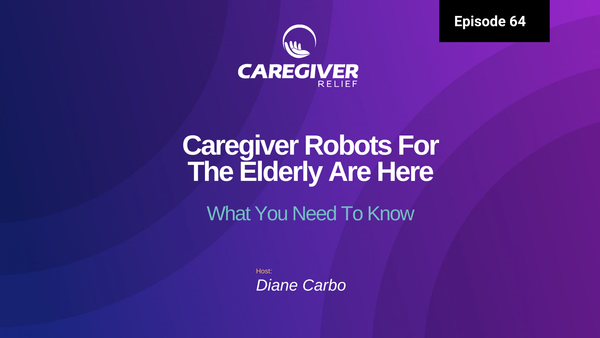A Main Symptom in Lewy Body Dementia is Loss of Memory

Lewy Body Dementia (LBD) is a type of progressive brain disorder that impairs a person’s thinking and movement abilities. It is the second most common type of degenerative dementia, after Alzheimer’s disease. LBD is characterized by a combination of cognitive decline, physical symptoms, and changes in behavior and mood. One of the main symptoms of LBD is memory loss, which can have a significant impact on a person’s quality of life.
Memory loss in Lewy Body Dementia may include difficulty forming new memories, forgetting recent events, and having difficulty recalling details from the past. In some cases, a person with LBD may also experience delayed recall, or the inability to remember something even when reminded. Although there is no cure for LBD, there are treatments and strategies available to help manage the effects of memory loss.
In this guide, we will be covering the main symptom of Lewy Body Dementia – memory loss. We will discuss the early signs of memory loss, potential causes, and how memory loss can be managed. We will also provide resources and support for those living with or caring for someone affected by LBD.
Overview of Memory Loss in Lewy Body Dementia
Lewy Body Dementia (LBD) affects the brain leading to memory loss. It is characterized by impaired recall, delayed recall, or difficulty forming new memories. Many people with LBD experience some degree of memory impairment, but it can be especially difficult for those affected by more advanced stages of the condition.
Delayed recall, or impaired ability to recall information after a certain time, is often seen in LBD. This type of memory loss can create difficulty remembering recent events or conversations. Additionally, people with LBD may find it hard to form new memories, as it can become more challenging to retain new information.
The types of memory loss associated with LBD can affect daily life in various ways. People with LBD may struggle with things like remembering names, dates, or directions, as well as recalling conversations or instructions. This type of cognitive decline can cause confusion, frustration, and even disorientation.
Early Signs of Memory Loss in Lewy Body Dementia
If you or someone you know is living with Lewy Body Dementia (LBD), it is important to be aware of the early signs of memory loss. Memory loss can be a difficult issue to deal with, but by being mindful of the early signs, you can help to manage it more effectively.
Some of the early signs of memory loss associated with LBD include difficulty concentrating and confusion. These can present themselves in different ways, such as difficulty following conversations or confusing words and ideas. In addition, there may be a decrease in short-term memory, where someone is unable to remember recent events or conversations.
Other early signs of memory loss in LBD include misplacing items more often, difficulty comprehending and organizing information, and changes in behaviour or mood. If you or someone you know is exhibiting any of these symptoms, it is important to seek medical attention as soon as possible.
What Causes Memory Loss in Lewy Body Dementia?
For those affected by Lewy body dementia (LBD), memory loss is one of the key symptoms of the condition. The causes of memory loss in LBD can be complex, but are primarily rooted in neurodegenerative processes and underlying cognitive deficits.
Neurodegenerative processes such as norepinephrine depletion, alterations in the cholinergic system, and abnormal protein aggregation in neurons all contribute to cognitive deficits including memory loss. These deficits can lead to significant impairment in cognition, causing difficulty remembering both recent and past events.
Additionally, changes in brain structures that are associated with LBD can further impair cognitive functioning. These structural changes include abnormalities in the hippocampus, an area of the brain responsible for forming and storing memories. The hippocampus is especially vulnerable in LBD, impairing the formation of new memories and leading to overall memory loss.
It's important to differentiate memory loss due to LBD from other forms of dementia, such as Alzheimer’s disease. While both conditions are characterized by memory loss, the causes of memory loss and associated risk factors vary between the two. Identifying the differential diagnosis of LBD-related memory loss can help guide treatment decisions.
Differential Diagnosis: Differentiating Lewy Body Dementia Memory Loss from Alzheimer’s Disease or Other Dementias
It is important to differentiate memory loss associated with Lewy Body Dementia (LBD) from that of Alzheimer’s disease and other types of dementia. Memory loss due to Alzheimer’s disease typically progresses more slowly, and there is no significant involvement of the frontal lobes or increase in disturbances of movement. LBD memory loss, however, can be characterized by rapid fluctuations in cognition, resulting in frequent dissociative episodes, impaired concentration, and confusion.
In order to distinguish memory loss due to LBD from other forms of dementia, a comprehensive medical evaluation should be conducted, including a physical and neurological examination, laboratory tests, neuropsychological testing, and imaging studies such as magnetic resonance imaging (MRI) or computed tomography (CT). This type of assessment will help to identify any underlying cognitive deficits and pathology that may be causing the memory loss, as well as determine how the symptoms differ from those of Alzheimer’s disease or other types of dementia.
Associated Risk Factors
There are a number of potential risk factors associated with memory loss in Lewy Body Dementia (LBD). Genetics and environmental factors may play a role in the development of LBD and its associated memory loss.
It is believed that genetics may be a contributing factor for some individuals, as many cases of LBD appear to run in families. Additionally, certain environmental influences are thought to increase the risk of developing LBD and its associated memory loss. These include exposure to pesticides, preservatives, and heavy metals such as lead or mercury.
In addition, research indicates that smoking and other lifestyle factors may be associated with an increased risk of developing Lewy Body Dementia and its related memory loss.
Treatment for Memory Loss in Lewy Body Dementia
For those dealing with memory loss due to Lewy Body Dementia (LBD), there are several medications that can help improve and manage symptoms. Cholinesterase inhibitors are the most common type of medication used to treat memory loss in LBD. These medications work by blocking the breakdown of chemicals in the brain, such as acetylcholine, which is responsible for memory and learning functions.
Cholinesterase inhibitors have been found to be particularly effective in improving memory, attention, and language functions in people with LBD. Antidepressants and antipsychotics may also be prescribed to manage some of the behavioral issues associated with memory loss in LBD.
Cognitive Rehabilitation
Cognitive rehabilitation therapy is an important component in the management of memory loss in Lewy Body Dementia. Cognitive rehabilitation includes activities that help strengthen the areas of mental functioning that are affected by LBD, such as attention, problem solving, and memory.
Cognitive rehabilitation involves a series of structured activities, such as cognitive retraining exercises or compensation strategies, that are tailored to a person’s specific needs. For example, if a person struggles with memory recall, they may be given memory aids or strategies to help them remember. Cognitive rehabilitation also includes practice activities to help a person relearn how to do certain tasks, such as managing finances or taking medications.
In addition to memory aids, cognitive rehabilitation also helps a person challenged by LBD develop other coping strategies to help them manage their daily lives. Strategies might include creating lists and calendars, setting reminders, and breaking down large tasks into smaller ones. These strategies help reduce memory strain and improve overall functioning.
Cognitive rehabilitation therapy is often provided by therapists who specialize in dementia, such as an occupational therapist or speech-language pathologist. With the help of family carers and health professionals, a person with LBD can work together to develop personalized strategies that will help them cope with their memory loss.
Social Services for People with Memory Loss
Living with memory loss due to Lewy Body Dementia (LBD) can be overwhelming and difficult to manage. Fortunately, there are a variety of social services available to help those affected by memory loss. These services can provide emotional support, medical care, and assistance with day-to-day tasks.
One of the most common types of social services for people living with memory loss is home care. This includes a range of services such as homemaking, personal care, and companion care. Homemaking involves providing daily tasks such as housekeeping, laundry, and meal preparation, while personal care may involve assistance with bathing, dressing, and other activities of daily living. Companion care involves providing companionship to the person living with dementia, such as conversation and recreation.
Another helpful service for those affected by memory loss is support groups. These groups usually consist of family members, friends, or healthcare providers who meet to discuss strategies for caring for and supporting someone with dementia. The groups typically provide an informal and friendly atmosphere, where members can share their experiences and feelings, and offer advice on how best to cope with the challenges of memory loss.
There are also various mental health organizations that specialize in helping those with memory loss, such as the Alzheimer’s Association, the Lewy Body Dementia Association, and the National Institute on Aging. These organizations provide counseling, resources, and other helpful services to individuals affected by dementia.
Sources of Support
Living with memory loss due to Lewy Body Dementia can be extremely challenging and isolating, but there are many sources of support available. Mental health organizations, healthcare providers, and other specialized services offer counseling and other helpful services that can provide guidance and comfort.
Organizations like the Alzheimer’s Association or the Lewy Body Dementia Association are devoted to providing resources and support for individuals and families affected by LBD. They offer education, advocacy, support groups, and even social activities that can help those living with LBD cope with the symptoms.
Other programs, such as home care or adult day care services, can provide respite for caregivers and assistance with everyday activities, from grocery shopping and cooking to bathing and transportation. These services can be essential in helping those affected by LBD maintain independence and quality of life.
In addition, there are many local and online support communities where you can find comfort, understanding, and advice from people who are facing similar experiences. Talking to people in support communities can be a great way to get encouragement and advice on how to manage memory loss, and to help lessen the burden of caregiving.
Coping with Memory Loss
Memory loss due to Lewy Body Dementia (LBD) can be difficult to cope with, but there are strategies you can use to manage it. Here are some tips for helping yourself or your loved one with memory loss related to LBD:
- Create memory aids: Writing down important information, keeping a planner, and surrounding yourself with reminders can help you stay organized and on top of tasks.
- Maintain healthy activities: Staying physically active, engaging in creative activities, and connecting with others can help keep you stimulated and engaged.
- Identify triggers: Pay attention to situations that make your symptoms worse and try to avoid them if possible.
These tips can be helpful for making life with memory loss due to LBD more manageable. It's important to remember that you are not alone and that there are resources available to help you cope.
Conclusion: Memory Loss in Lewy Body Dementia
Living with or caring for someone with Lewy Body Dementia (LBD) can be challenging, and it’s important to remember that everyone’s experience is unique. In this guide, we have discussed the types of memory loss associated with LBD, possible causes, and treatment and support options. It is important to recognize the early signs of memory loss, get a correct diagnosis, and find the right treatments and resources to ensure the best possible quality of life for those affected by LBD.
If you or someone you know is living with LBD and experiencing memory loss, there are steps you can take to help manage the condition. Medication, cognitive rehabilitation therapy, and lifestyle changes can all help improve and maintain memory function. Additionally, there are social services available to provide homecare support, and organizations and support groups to offer additional resources and advice.
Finally, it is important to stay involved in activities that bring you joy and help keep your mind sharp. Creating memory aids, doing puzzles or other physical activities, joining a support group, and keeping up with hobbies can all help keep your mind active and engaged. It is important to remember that although memory loss can be difficult, it is possible to cope and even thrive with the right care and support.




